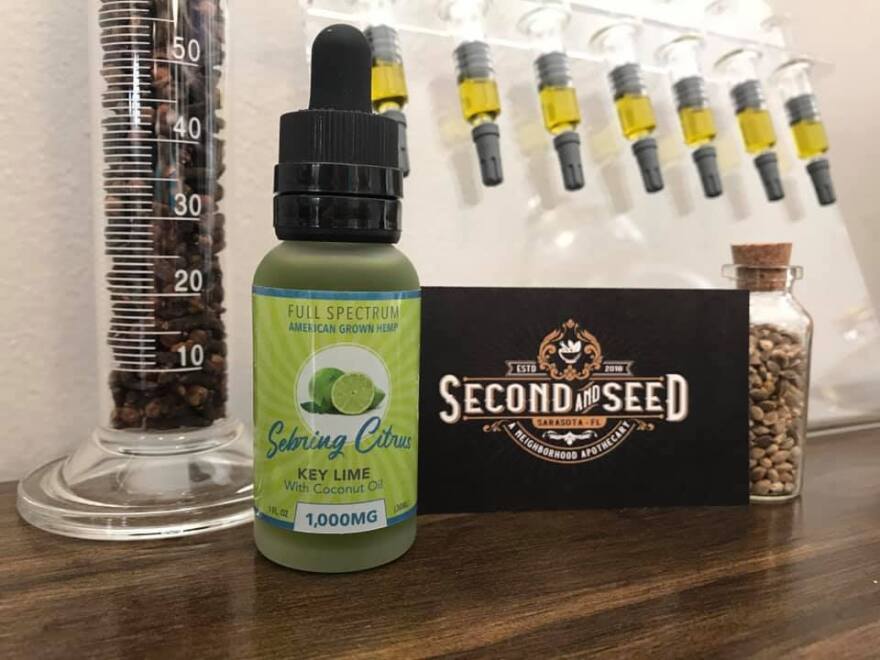CBD is showing up more and more in Florida, from gas stations to grocery stories. It was being sold long before it became legal in the state on July 1. But there is a lot of confusion about whether it’s safe and what is legitimate.
This week on Florida Matters we get some clarity about CBD products from experts who sell it or recommend it to patients.
Our guest include:
Dr. David Berger, owner and medical director of Wholistic Pediatrics and Family Care
Jonathan Solomon, president of Proleve, a company that sells lab-tested CBD products
We learn more about what CBD is. The ingredient is found in cannabis plants, but it does not produce the high commonly associated with marijuana. People who consume it say it helps with stress, pain relief and sleep, as well as other conditions.
But not all products you see on store shelves or online are created equal. There are plenty of businesses selling CBD products that either don’t contain real CBD or that also contain harmful additives.
RELATED: Seeing Green, Florida Readies Hemp Program
Dr. Berger recommended people interested in trying CBD consult with their physician and try to obtain it from a medical marijuana treatment center, commonly known as a dispensary. These facilities were able to legally sell CBD before the law legalizing hemp in the state went into effect on July 1.
Berger said dispensary staff should be knowledgeable in educating patients about CBD products, and because the state has strict rules about what is sold in dispensaries, there is a much higher chance the products are safe.
But for those not interested or able to obtain authorization to shop in medical marijuana dispensaries, Jonathan Solomon said there are other companies selling safe, effective CBD products. He said there are several factors to consider when determining if a CBD product seems safe:
- Check to see if the product contains any additives or fillers.
- Check whether the product – and the CBD itself – is made in America. He said there have been cases where CBD coming from other countries like China or India has been contaminated with hard metals or chemicals the plant absorbed in the ground.
- Ensure the product is THC-free or at least contains less than 0.3 percent THC, which is the legal limit.
- Confirm whether the finished product is tested by a third-party lab. Companies should have their lab results readily available, with many choosing to post them on their websites.







